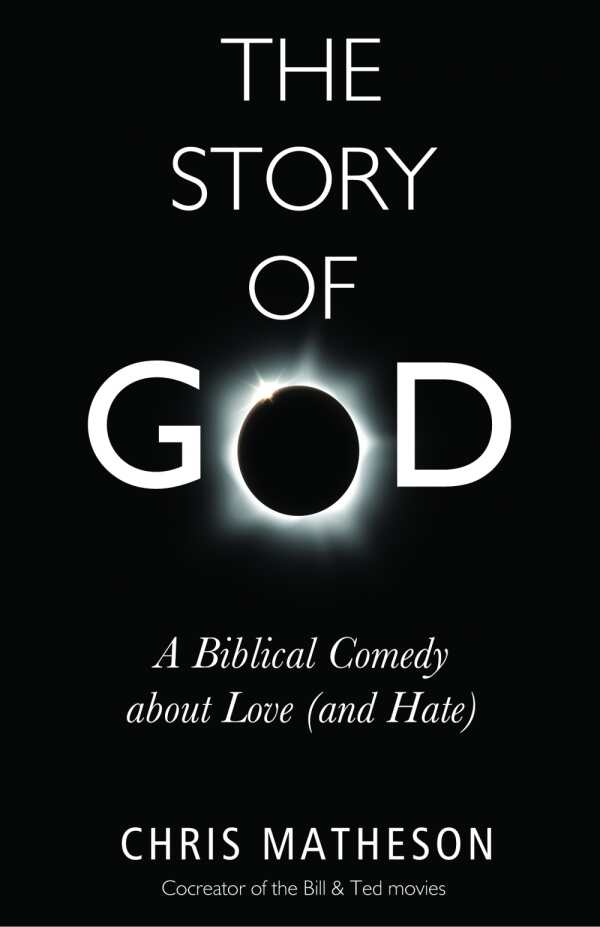The Story of God
A Biblical Comedy about Love (and Hate)
God has never been this damned funny in this pseudo-sacred, sacrilegious piece of silliness.
In his debut comic novel, Chris Matheson, screenwriter for the Bill & Ted flicks, grabs a seat at the theater of the absurd for an on-the-scene report about The Story of God.
With the Bible as script, Matheson perceives a ready-made fantasy plot, ripe with conflict driven by a divine protagonist. As he leafs through the Bible’s books, he inserts parenthetical chapter-verse references when quoting, or reframing, scripture. Here Jehovah proclaims, “Don’t plant a field with an ox and an ass together; I’m not sure why, I just don’t like it! (Deut. 22:10).” With proclamations in or out of context, Matheson creates a God who soon defines himself as arbitrary, drama-obsessed, and misogynistic. As for Matheson, he adds “latent homosexual” to the description.
Matheson blends character and theme symbiotically to deconstruct the personality of his presumed Omnipotent-Omniscient One. For the joke to work, however, Matheson gives his God a human psychological makeup, albeit casually avoiding the complications of a discussion of free will. But he offers enough of the ugly human emotions, moral failings, and intemperance to generate much pseudo-sacred—sacrilegious?—silliness. By the time Matheson’s finished creating his cranky old man of the Old Testament, he has the supreme being characterizing himself as “a bully and a coward and a weakling.”
With minimal references to setting—there’s talk of pharaohs and Babylonians, but Matheson doesn’t take readers there—it’s the God of the Old Testament who gets the most attention. In reference to “his” people, from Abraham to David to Solomon, God makes much noise about circumcision and scatology, all while fussing over the failings of one prophet or another. Jesus and the New Testament come off relatively unscathed, although the father finds the son “enigmatic … vaguely unsettling.” However, when Matheson deconstructs Revelation, that theological empire where amateur theologians or professed atheists fear to tread, he mangles the mystical into absurdity.
No book for believers is this. Literalists will cry blasphemy. Thoughtful theists will find more profitable afternoon reading.
Reviewed by
Gary Presley
Disclosure: This article is not an endorsement, but a review. The publisher of this book provided free copies of the book to have their book reviewed by a professional reviewer. No fee was paid by the publisher for this review. Foreword Reviews only recommends books that we love. Foreword Magazine, Inc. is disclosing this in accordance with the Federal Trade Commission’s 16 CFR, Part 255.

